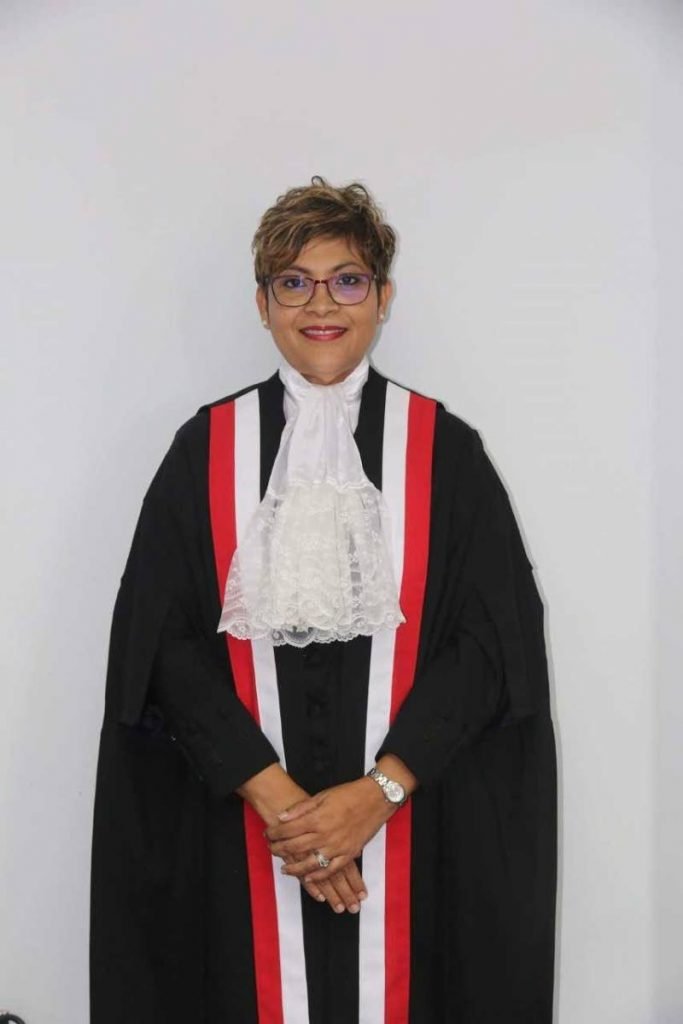Judge: Psychiatric hospital needed for mentally ill prisoners

A HIGH COURT judge has advocated for a specialist psychiatric hospital for the treatment and care of mentally ill prisoners.
Making the call was Justice Lisa Ramsumair-Hinds, during her resentencing of convicted killer Bruce Herrera.
She said as a sentencing judge, the separation of powers aside, it was the Executive’s burden to fill the gap to provide a secure custodial environment for these types of prisoners since the St Ann’s Hospital was ill-equipped to do so.
“The burden of closing this gap falls to the Executive, not the Judiciary.
"The time has for our version of a modern Broadmoor Hospital (England’s oldest high-security psychiatric hospital). And I have to ask, where is the advocacy for the rights of mentally ill prisoners?...
“I am frustrated by the absence of a specialist facility for a secure therapeutic environment for prisoners who require psychiatric treatment.”
It was because Herrera was diagnosed with schizophrenia and prison psychosis which would require his close supervision and there were no suitable options if he were released at this time that the judge sentenced him to the court’s pleasure, with reviews every two years.
He has four years, five months and 19 days left on his sentence to serve and will return for his first review on April 29, 2026.
His punitive sentence was set at 37 years for the October 11, 1995 murder of William Whan Tong in Maraval.
Herrera was convicted in 1999 and his appeal was dismissed later that year.
Herrera’s death sentence was commuted to life and in 2023, Justice Ricky Rahim ordered that he should be resentenced by the criminal court, in keeping with the Privy Council’s ruling that the local courts were not limited to imposing a life sentence, but should apply the principles of sentencing to arrive at an appropriate sentence.
Ramsumair-Hinds also advocated for Parliament to answer the judicial call for the categorisation of murder as she pointed out that the death penalty was not being carried out in Trinidad and Tobago, resulting in the dockets of both civil and criminal-court judges being laden with matters involving commutation of the death penalty.
“Not all murders are equal,” she said, although she noted that by the court’s sentencing of specified terms under the felony murder rule, “we have characterised murder.”
In Herrera’s case, the judge also pointed out that for the 28 years of his incarceration, he did not receive a single visit from a relative even after prison authorities made repeated attempts to track down family members.
She said because of his condition, Herrera would need controlled supervision. She also said a facility in Tobago was willing to assist. However, she said it would have to be paid for, possibly by social welfare grants, but it was unclear who was to facilitate the application for these.
“I did consider conditional release, but the proverbial pound of flesh has not yet been exacted. In my view, there is a need for his continued detention. The punishment must fit the crime.”
Ramsumair-Hinds told Herrera even after his term was finished, if the court determined, at the next review, he was likely to be a risk to society, his detention might continue beyond the four years.
Herrera chopped Whan Tong, of Haleland Park, 20 times and tied up his maid and threatened to kill her.
His left hand was severed at the wrist and an autopsy report said there were 20 wounds to the body, including the head.
Herrera confessed to the killing after he was arrested at his Paramin home and was also identified by Whan Tong’s maid.
At his resentencing, Herrera was represented by public defenders Adaphia Trancuso-Ribero and Michael Modeste. Charmaine Samuel and Gilliana Guy appeared for the State.

Comments
"Judge: Psychiatric hospital needed for mentally ill prisoners"